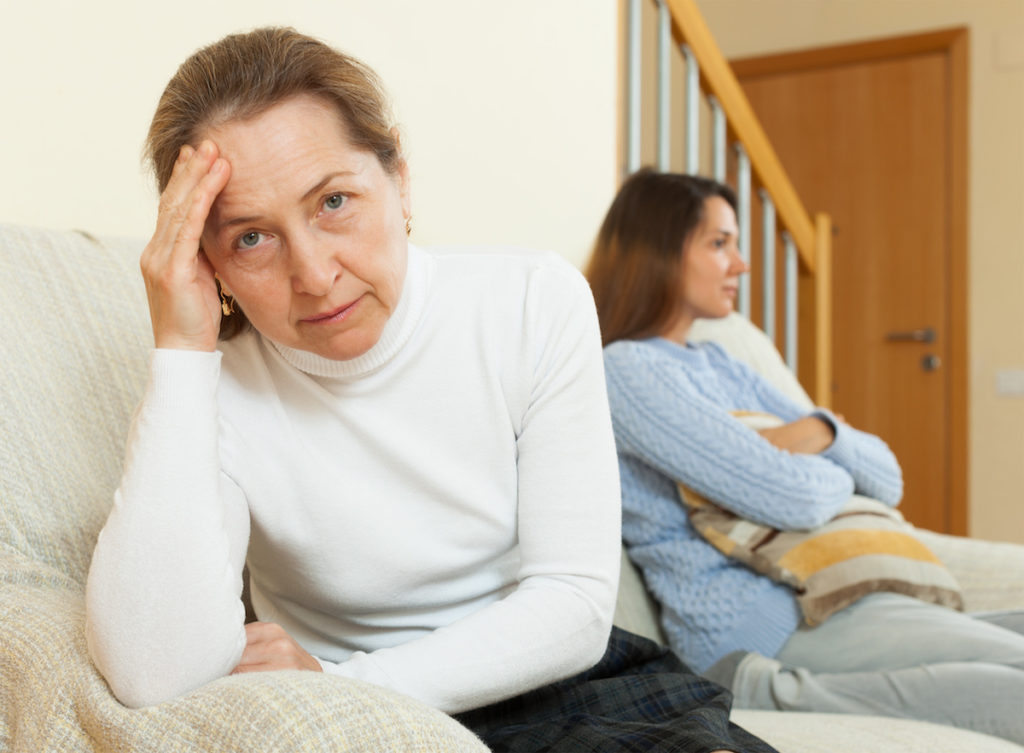Lorelie Rozzano is a guest blogger for Vertava Health.
Unhooking From Your Addicted Loved One
— Mary says her 25-year-old daughter, Gina, is going to be the death of her. Gina is a heroin addict who lives with Mary on and off, but mostly off. Mary is also raising Gina’s two children. Mary knows it’s not easy to love someone struggling with addiction. She wants to be understanding. She knows her daughter is sick and has empathy for Gina, but most days, Mary is just too tired to cope with Gina’s ever-increasing demands. Mary feels exhausted, resentful and stuck. She doesn’t know how she can improve her situation. Mary is not alone. Addiction affects one in seven families. Although Mary doesn’t know it, she is in survival mode. Mary has attached her wellbeing to the actions and emotions of her daughter. If Gina is happy, Mary can rest easy. When Gina’s not happy, Mary pays the price. To keep the peace, Mary and many other families put their addicted loved one’s needs before their own. They learn to tolerate the intolerable, moving into a codependent role and enabling their loved ones poor choices by doing for them what they can and should be doing for themselves. The toxic relationship between Mary and Gina allows Gina to focus on her relationship with drugs while Mary is left to pick up the pieces. Those struggling with addiction are in denial. They protect their illness by using defensive maneuvers and playing mind games. They deny the seriousness of their problem by exhibiting dishonest, intimidating and manipulative behaviors. [lorelie-callout] If Mary wants to take her life back, she’ll need to set boundaries and find a support system. Healthy boundaries are the physical, emotional and mental limits you establish to protect yourself from being manipulated, used or violated by others. If Mary starts saying no, she can expect things to get worse, not better, for a while. Gina is used to being rewarded for behaving badly. If Mary says no, it threatens Gina’s addiction. If Gina is to survive her addiction, Mary needs to learn to say no, anyway. Gina has become a master at emotional exploitation. When she doesn’t get what she wants from Mary, she threatens to harm herself or engage in crime. She becomes verbally abusive and accuses Mary of not loving her. This is the pathology of addiction. Gina and Mary will live this dance until one of them dies or recovers. Learning how to unhook from your addicted loved one takes practice. It doesn’t mean you don’t love them or support their choice to get well, learning to unhook simply means you stop taking the bait. Just because the lure is there (meaning emotional extortion) – doesn’t mean you have to bite it. Learning how to unhook means you stop engaging in enabling behaviors and you stop beating yourself up. You stop engaging in power struggles. You stop trying to talk sense into an addicted loved you. You accept that they are sick and delusional. You accept they have a disease that is out of your scope of expertise. If you don’t accept it, you’ll keep trying to fix them though control. As the old saying goes: “Nothing changes if nothing changes.” Instead of arguing, walk away, but don’t give up. Bring in reinforcements. Keep in mind when an addict is using they don’t care about themselves. Going without drugs or alcohol scares them more than dying from their disease. Recovery requires you to start paying attention to your own needs. First, you must identify what your needs are. Then ask yourself this: am I expecting someone who is terminally ill to meet those needs? Insanity is doing the same thing over and over again- expecting a different result. Unhooking from someone you love is never easy. You may feel its disloyal and uncaring, but unhooking just means you’re allowing the chaos and the consequences to belong to the person who created them. When the consequences are greater than the rewards one gets from using, recovery happens. Living with the stress of Gina’s volatile behavior is compromising Mary’s health and immune system. She will likely end up in bed suffering from an emotional breakdown. She is also vulnerable to flu and colds or other chronic health issues such as high blood pressure, ulcers, migraines, insomnia, heart disease, cancer and stroke. Although Mary and Gina’s life appears to be falling apart, it might actually be coming together. Change doesn’t happen without pain and turmoil. The best thing Mary can do for Gina and herself is exercising some self-care. To recover from addiction, you must step outside your comfort zone and face everything you’ve been avoiding. Successful happy people don’t lack problems in their lives, they deal with them. When you view your struggles as an opportunity to learn something new, you achieve inner peace and wisdom. Mary, or anyone else struggling with a loved one’s addiction, doesn’t have to spend one more minute in misery. Recovery isn’t an intention, a desire, wishful thinking or impossible. People who change for the better, do it through one thing only – action. To start your new life all you have to do is reach out for support and admit that you need help. If you or someone you know needs help, please call this confidential support line for assistance. 844-470-0410.


